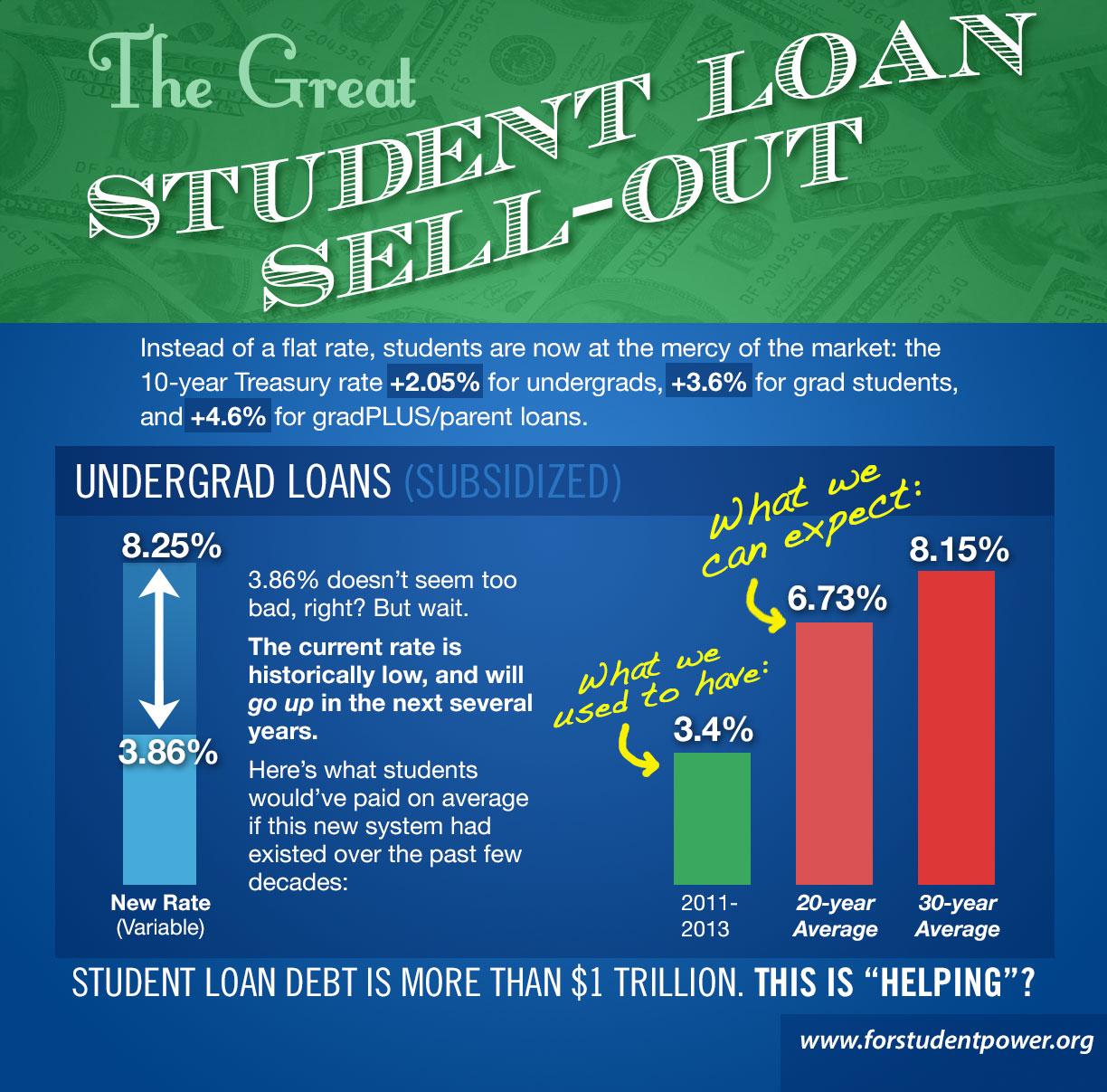| Online: | |
| Visits: | |
| Stories: |

| Story Views | |
| Now: | |
| Last Hour: | |
| Last 24 Hours: | |
| Total: | |
Crashing Student Loan Debt Will Be Major 2016 Issue–System Will Bankrupt US Colleges (Picture)


Student debt is poised to become a huge issue in the 2016 political season—which we’re basically already in—along with all of the other pressures financially squeezing the middle class so tightly right now. Eighty-two percent of Americans support providing lower-cost stud334ent loans for college education, and giving students more time to pay them off. In fact, these ideas received the most support of any issue surveyed in an NBC/Wall Street Journal poll this month.
Some of the concern over student debt is likely driven by the startling headline numbers. In six states, the average student graduates with more than $30,000 in debt after earning a bachelor’s degree, according to a report released this month. Nationwide, the average is more than $28,000.
As David Leonhardt points out in The New York Times, these averages can be misleading. They are driven by the huge amounts of debt—both in federal and private student loans—that a relatively small percentage of students take on to go to the most expensive schools. Most graduates—58 percent—have less than $10,000 in debt. For the most part, the roughly one-third of Americans who earn bachelor’s degrees are going to earn more over their lifetimes and do better financially than their peers without degrees. They would be better off if their loan repayments were delayed, since their earnings will grow in the years after they graduate, and capped to their income, but the debt they take on is ultimately rewarded with higher earnings.
How risky it is to take on such debt depends a lot on students’ majors, where they go to school, and how much their parents can help. Which brings me to the biggest concerns about student loans. It’s the huge numbers of students who go to college but do not finish, and take on debt to attend increasingly expensive public universities that used to be almost free. These students are more likely to be low-income to begin with, and if they don’t get their degrees, most of them won’t have the higher earnings that will enable them to pay off their debt. The challenges they face getting to and staying in college and repaying their debts are big drivers of broader economic inequality. If they struggle to earn the degrees that will get them better-paying jobs, how are they going to move higher up the income ladder from where their parents were?morehere



